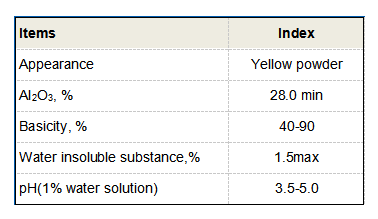Pac Poly Aluminum Chloride Applications and Benefits in Water Treatment and Purification
The Role of PAC (Poly Aluminum Chloride) in Water Treatment
Poly Aluminum Chloride (PAC) has emerged as a crucial component in the field of water treatment. As a versatile coagulant, PAC is widely used in various applications, ranging from drinking water purification to industrial wastewater treatment. This article explores the properties, applications, and advantages of PAC, highlighting its significance in maintaining water quality and sustainability.
The Role of PAC (Poly Aluminum Chloride) in Water Treatment
One of the primary applications of PAC is in drinking water treatment facilities. Municipalities around the world rely on PAC to ensure that their water is safe for consumption. The compound helps remove harmful substances such as suspended solids, bacteria, and organic matter from water, thus contributing to public health. The use of PAC in drinking water treatment is particularly beneficial due to its efficiency at low dosage levels and its ability to work effectively across a wide range of pH levels.
pac poly aluminum chloride

In addition to drinking water treatment, PAC is also extensively used in industrial wastewater treatment. Many industries, including paper manufacturing, textiles, and food processing, generate large volumes of wastewater that contain various contaminants. PAC aids in the clarification and dewatering of this wastewater, allowing for the recovery of valuable resources and minimizing the environmental impact. By using PAC, industries can comply with stringent discharge standards and contribute to sustainable wastewater management practices.
The advantages of using PAC extend beyond its coagulation capabilities. PAC is known for its rapid dissolution and effectiveness at low concentrations, which makes it a cost-effective solution for water treatment. Unlike traditional coagulants, PAC generates less sludge during the purification process, making it easier to manage and dispose of waste residues. Additionally, its ability to work efficiently in a broad range of water conditions ensures its versatility in different treatment scenarios.
Moreover, PAC offers environmental benefits that align with global sustainability goals. Its application in water treatment helps preserve freshwater resources and reduces the reliance on chemical alternatives that might be harmful to the environment. By using PAC, water treatment facilities can enhance their operations while minimizing their ecological footprint.
In conclusion, Poly Aluminum Chloride (PAC) plays a vital role in modern water treatment processes. With its superior coagulation properties, versatility, and environmental benefits, PAC is an indispensable tool for ensuring water quality in both public and industrial settings. As the world faces increasing water scarcity and pollution challenges, the adoption of efficient and sustainable treatment solutions like PAC will be crucial for safeguarding this precious resource for future generations.
-
Pbtc Scale InhibitorPBTC: A Scale Protector for Industrial Water TreatmentNewsAug.05,2025
-
Organic Phosphonate: An Efficient Defender in the Field of Scale InhibitionNewsAug.05,2025
-
Hydrolyzed Polymaleic Anhydride: Green Pioneer in Scale Inhibition FieldNewsAug.05,2025
-
PAPEMP Polyamino Polyether Methylene Phosphonic Acid For SaleNewsAug.05,2025
-
Flocculant Water Treatment: A Pioneer in Purification in the Field of Water TreatmentNewsAug.05,2025
-
Benzyl Isothiazolinone: An Efficient and Broad-Spectrum Antibacterial Protective GuardNewsAug.05,2025





